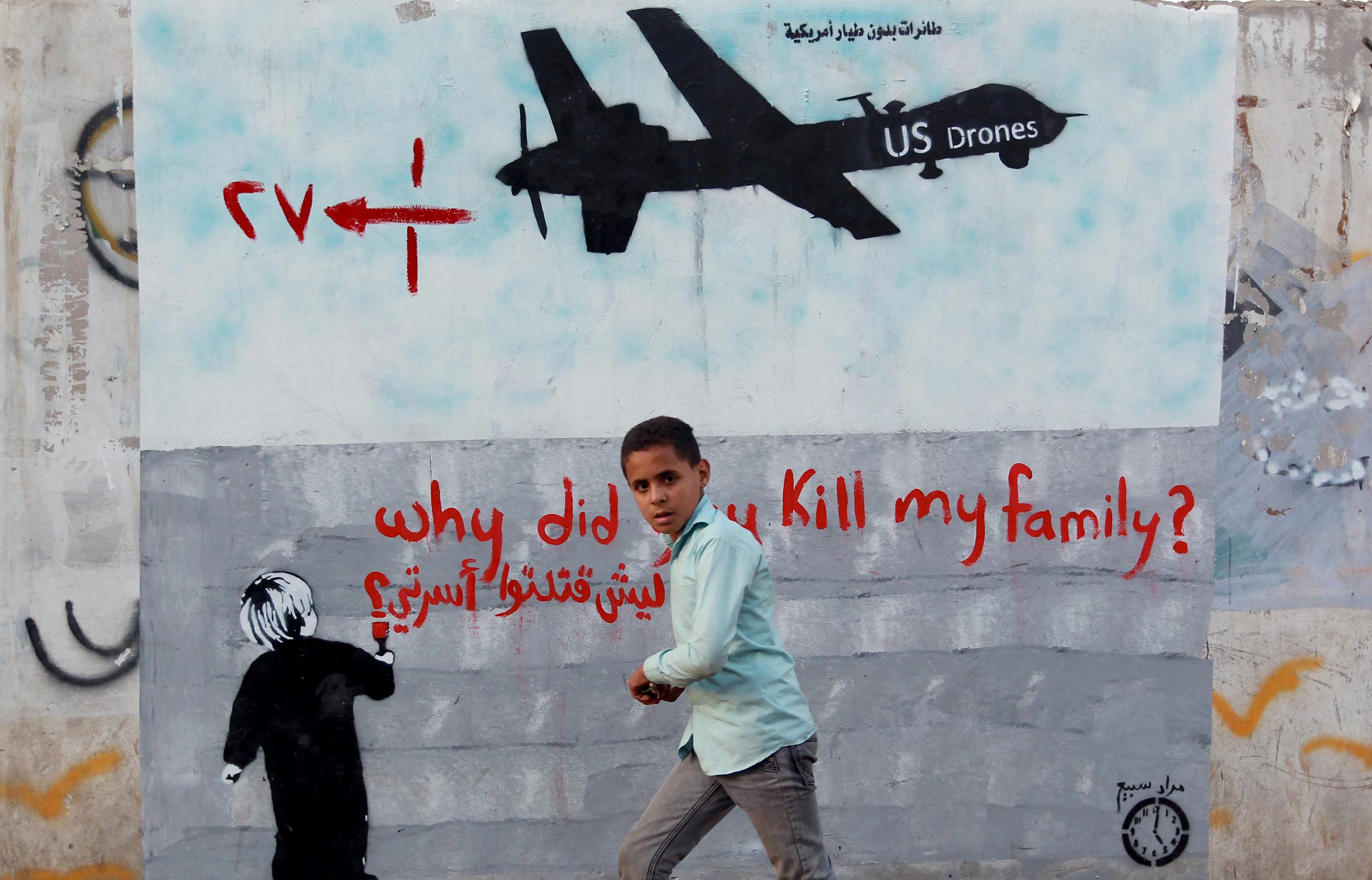A U.S. drone strike hit a vehicle in central Yemen on Monday, killing three members of al-Qaida according to a representative of the group. The strike was the first since Yemen’s U.S.-backed government collapsed last week, in what’s been widely seen as a major setback for efforts to combat the powerful al-Qaida affiliate that took credit for the Charlie Hebdo attacks.
But what if the drones themselves are part of the problem? It’s not unreasonable to ask whether U.S. attacks in the past six years, and particularly the civilian casualties they have caused, helped to hasten the Yemeni government’s fall, contributing to the headache now confronting U.S. counterterrorism efforts.
According to data collected by the New America Foundation, as of the end of 2014, the U.S. had launched 118 drone and air strikes on Yemen—all but one of them under the Obama administration—killing more than 800 people, including between 81 and 87 civilians. U.S. authorities have stressed that they do all they can to avoid civilian casualties, although the administration has also adopted a controversial method of counting casualties that essentially designates all military-aged males in a strike zone as military combatants.
Since al-Qaida in the Arabian Peninsula has risen to become the most powerful affiliate of the international terror network and the U.S. has drawn down its presence in Afghanistan, Yemen has begun to displace Pakistan as the main battlefield of the U.S. drone war. For Americans, the best known drone strikes in Yemen are those that killed American born al-Qaida cleric Anwar al-Awlaki and his son in 2011, in what was a rare and controversial instance of a U.S. citizen being targeted for extrajudicial killing overseas. Yemen was also the site of one of the drone war’s greatest tragedies: Fifteen civilians were accidentally killed in 2013 when their wedding procession was mistaken for an al-Qaida convoy.
There’s long been concern that the strikes have been driving sympathy and support for al-Qaida, particularly in predominantly Sunni southern Yemen. As the Washington Post’s Sudarsan Raghavan reported in 2012, “In 2009, when President Obama was first known to have authorized a missile strike on Yemen, U.S. officials said there were no more than 300 core AQAP members. That number has grown in recent years to 700 or more.” Locals told Raghavan, “These attacks are making people say, ‘We believe now that al-Qaeda is on the right side.’”
There’s no direct link between the al-Qaida sympathies prompted by drones and last week’s government collapse. The drone campaign has been concentrated in the country’s south while the Houthis—the Shiite militia that has now taken over the capital—come from the north and are enemies of al-Qaida. But al-Qaida’s growing strength was one reason that the Houthis portrayed themselves as an alternative to the pro-American stance of both ousted former presidents, Abd-Rabbu Mansur Hadi and Ali Abdullah Saleh, and their opposition to drone strikes only helps their cause..
The future of the U.S. campaign Yemen is uncertain after the Houthi takeover. While the Iranian- supported group has opposed drone strikes in the past and chants “death to America” at its rallies, there’s some hope it may actually be fairly accommodating to efforts aimed at its mortal enemy, al-Qaida.
There’s less hope that the U.S. will seriously consider whether the drone campaign has been effective at all. As counterterrorism scholar Bruce Reidel notes, after the costly and unpopular engagement in Iraq and Afghanistan, “Yemen was supposed to be a role model for this smarter approach of building local capacity and getting our allies to do more.” Instead, in the time since the drone campaign was launched, al-Qaida has only grown in size, two pro-American governments have been overthrown, and the country is on the brink of splitting in two.
Maybe the French will have better luck.
